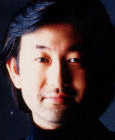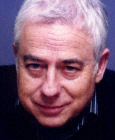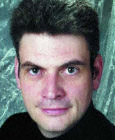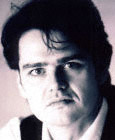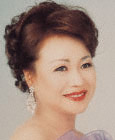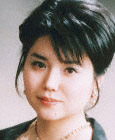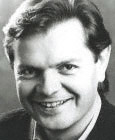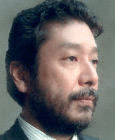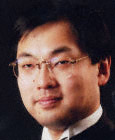W.A.Mozart : Die Zauberflöte<Opera in 2 Acts>
<Sung in German with Japanese Supertitles> OPERA HOUSE |
<Sample Movie> Please click here
STAFF |
||||||||||||||||||||||||||||||||||||||||||||
|
||||||||||||||||||||||||||||||||||||||||||||
CAST |
||||||||||||||||||||||||||||||||||||||||||||||||||||
| ||||||||||||||||||||||||||||||||||||||||||||||||||||
PERFORMANCES |
||||||||||||||||||||||||||||||
Doors will
open 45 minutes before the opening of the performance.
Approximate runnning time : 3 hours |
||||||||||||||||||||||||||||||
ADVANCE TICKETS |
|
| Available from Saturday 22 October, 2005 at 10:00am. To order tickets, please call +81-3-5352-9999 (10:00am-6:00pm). Internet ticket reservation available through the following Websites.(Japanese only) http://pia.jp/t http://eee.eplus.co.jp/ |
|
|
TICKET PRICES (with tax)
|
||||||||||||||||||||
|
||||||||||||||||||||
|
*A part of "Seat F" (¥3,150) : Sold at the
NNTT Box Office and all Ticket Pia outlets on the performance date only. Up to
2 tickets per person. No phone reservations. *Seat Z(\1,500):
Sold to students only at some Ticket Pia outlets on the day before the
performance. Any tickets not sold by the performance date will be released to
the general public at the NNTT Box Office and some Ticket Pia outlets. One ticket
per person. No phone reservations. Students must bring a valid student ID. *Same
day student tickets (50% off, except Seat F & Z ): Sold at the NNTT Box
Office and some Ticket Pia outlets on the performance date. One ticket per person.
No phone reservations. Students must bring a valid student ID.
*Opera House Ticket Prices & Seating Plan |
![handbill [Die Zauberflöte]](../../../season/s284/images/bill284.jpg)
The greatest work from the end of Mozart's life
Die Zauberflöte (The Magic Flute) is a singspiel that was written
in 1791, the year in which Mozart, who had exploited his reputation as a child
prodigy from his early years onward, died. It ranks with Le Nozze di Figaro,
Don Giovanni, and Così fan tutte as one of his great and
immortal operas and was written not for court theater centered on the aristocracy
but rather for common people. Consisting of songs and dialogues in German, the
opera became tremendously popularity from its first performance. As the comment
"Mozart's opera has no minor roles" suggests, all characters are required
to have the same level of musicality, singing technique, and acting ability as
the leading roles. The opera is full of highlights, including the two arias famed
for their marvelous coloratura, which depict the Queen of Night's blazing retaliatory
spirit, Papageno's cheerful aria Der Vogelfänger bin ich ja (I am
the bird-catcher), and his duet with Papagena Pa-Pa-Pa-Pa-Pa-Pa-Papageno! |
||||||||||||||||||||||||||||
Dynamic stage performance that can only be seen at NNTT
The direction by Michael Hampe, who always leads Europe's operatic circles, of
NNTT's premiere of Die Zauberflöte in May 1998 was highly rated
by critics. In The Yomiuri Shimbun, one critic wrote that the image of the opera
expanded from the conflict between the worlds of the sun the moon in the original
work, to include the cosmos, and that the dynamic force of nebulae far away in
space enveloped the stage. Another critic wrote in The Nihon Keizai Shimbun
that the director made free use of the theatre's stage system toward crystallizing
the charm of the music and drama. In the forthcoming production, Joji Hattori,
born in Japan but raised mostly in Vienna, who successfully conducted the opera
Zazà at NNTT's Pit in March 2005, will introduce powerful stage with established
Mozart singers, Alfred Reiter, Rainer Trost, Anton Scharinger, Sato Mieko, who
attracted the attention of the world as Japan's first singer who took top place
in the Tchaikovsky International Competition; and Sunakawa Ryoko, a talented young
singer.Synopsis Prince Tamino hears that Pamina,
the daughter of the Queen of Night, was taken by the "evil" Sarastro.
When shown a picture of Pamina, he falls in love with her, and attended by Papageno,
he goes to the temple of Sarastro. In reality, Sarastro is a high priestess of
virtue. Tamino is told that he has to overcome various ordeals to rescue Pamina.
He bravely faces these ordeals and successfully surmounts them.
|
||||||||||||||||||||||||||||
|
||||||||||||||||||||||||||||
